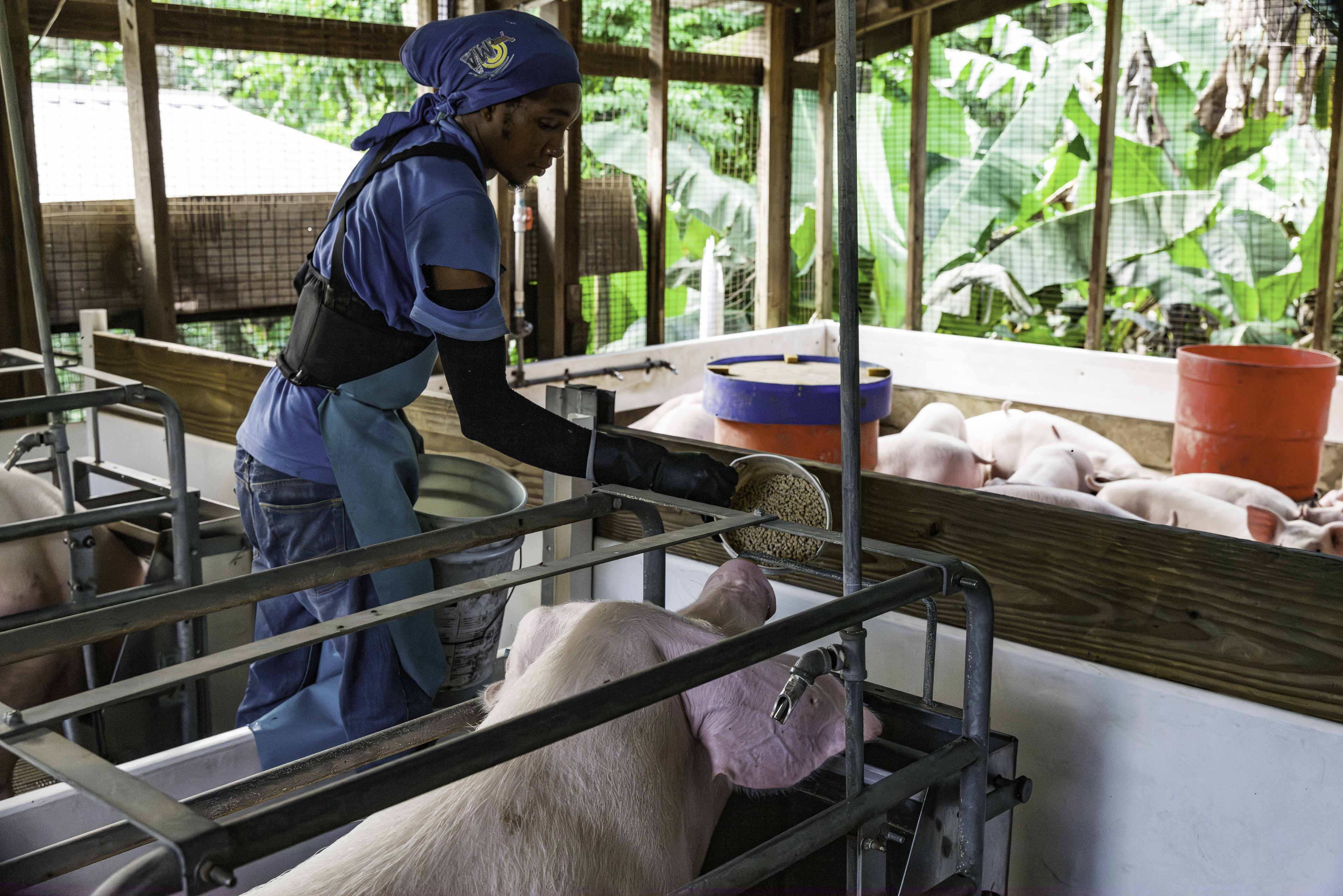A decade ago, Spain was among the countries with the highest consumption of antimicrobials in Europe, both in human and veterinary medicine, particularly those considered critically important. However, a voluntary initiative to reduce the use of colistin in the pig sector managed to reverse this trend and position the country as a benchmark in the responsible use of these drugs.
Spain’s experience was shared with the veterinary products sector of the Spanish-speaking Veterinary Services of the Americas Region during a closed webinar on 8-9 April.
Collaboration between regions is key to strengthen the global fight against antimicrobial resistance. Each region faces particular challenges, but also develops innovative solutions adapted to their contexts. Sharing best practices and regulatory approaches allows for improved strategies and promotes a more harmonised and collaborative approach.
Colistin is an antimicrobial part of the polymyxin class, and in the last decade it has gained global relevance as one of the latest therapeutic resources in human health against infections caused by multi-resistant bacteria. In veterinary medicine, it has been used mainly in animal production to treat enteric diseases, which has raised concerns about the emergence of transferable resistance mechanisms between bacteria.
For these reasons, its use is being increasingly restricted and regulated worldwide, in order to reduce the development of antimicrobial resistance (AMR) and to preserve its efficacy in human medicine. WOAH classifies colistin as a critically important antimicrobial in its reference list, and includes specific recommendations on its use in animal health.
In 2014, Spain was the European Union country with the highest use of colistin in animals. In response to this situation, the programme ‘Reduce: agreement for the voluntary reduction of colistin in the pig sector’, a joint public-private initiative, was launched.
ANIMUSE, the global database developed by WOAH, collects information on antimicrobial use in animals worldwide, promoting evidence-based decisions. ©Animal Pensant
The programme was based on the signing of a cooperation agreement in which the pig sector committed to reaching target reduction values within three years. In return, participating farmers received an official quality label, which allowed them to differentiate themselves positively in the eyes of consumers and distributors. In parallel, the consumption of other antimicrobial alternatives to colistin was also monitored to avoid an increase in their use.
A key part of the strategy was regular communication between the public and private sector to develop a joint strategy.
In just two years, more than 90% of the Spanish pig sector – represented by more than 230 companies – voluntarily joined the programme, achieving an almost 100% reduction in the use of colistin. Its success led to expand the initiative to other species and to include other types of antimicrobials, achieving an overall 70% reduction in the use of these drugs in animals between 2014 and 2022.
“The voluntary nature of the programme was instrumental in achieving these results. The quality label was a very strong incentive: those who were not initially in the programme ended up joining so as not to be left out of the market,” said Dr Cristina Muñoz Madero, coordinator of the National Antibiotic Resistance Plan.
Like any process of change, the programme faced resistance. The sector’s fear of public exposure of the data, doubts about the impact on productivity, and the need to adapt husbandry practices to improve biosecurity were some of the initial barriers.
All these difficulties were solved thanks to dialogue, collaboration, and joint work to provide all the necessary tools for producers to cope with the transition. Involving all sectors, from producers to distributors, slaughterhouses and supermarkets, was also key to success. Distributors started demanding the quality label from their suppliers, triggering a chain of positive incentives that strengthened adherence to the programme.
Data on antimicrobial use in animals in Spain are public and available in ANIMUSE and the Spanish government website. The authorities in each country can define the level of confidentiality of the data shared with WOAH through ANIMUSE.
The distinctive element of the programme was its positive approach: instead of sanctioning non-compliers, it chose to publicly recognise those who committed to responsible antimicrobial use. This strategy generated a motivational effect in the sector, which proved to be more effective than punitive measures, encouraging voluntary participation and sustained change in practices throughout the production chain.
More information:


